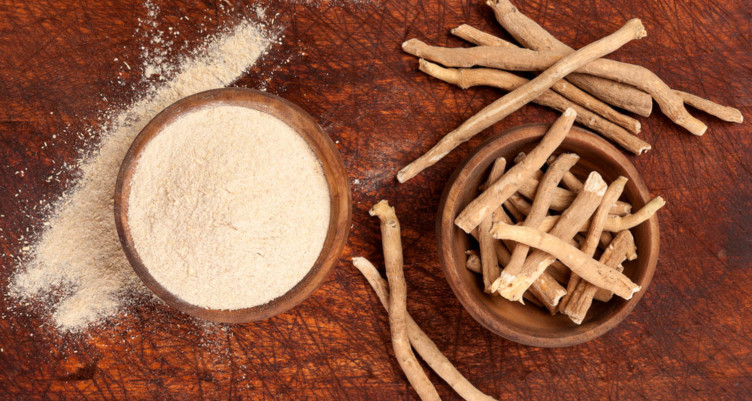- Ashwagandha is an adaptogen that helps support healthy cortisol levels, plus it may support sleep quality.
- The root of this plant in the nightshade family has been used in Ayurveda for thousands of years. Modern research supports its benefits for occasional stress relief and more.
- Ashwagandha, the key ingredient in Bulletproof Stress Gummies, relieves occasional stress and maintains a positive, happy mood during life’s stressful moments. †
Ashwagandha has been used as a traditional medicine in India as far back as 6000 BC.[1] More recently, the rhizome’s occasional stress-relieving properties have gained favor in the West. Ashwagandha is an adaptogen that helps support healthy cortisol levels, in addition to improving sleep quality.
In Ayurveda, India’s traditional health system, ashwagandha is considered rasayana,[2] An herb that supports longevity and overall health. Ayurvedic uses include supporting spiritual and healthy aging.
But besides stress and sleep, what are the science-backed benefits of ashwagandha? Also, is ashwagandha (pronounced osh-wah-gone-duh) safe? Read on to learn about ashwagandha side effects, when to take it, and one of the tastiest, easiest ways to incorporate this herb into your daily routine.
What is Ashwagandha?

Indian ginseng, whose botanical name is Withania somnifera, is a member of the nightshade family. Its distant relatives include tomatoes, potatoes, peppers, and eggplants. While the root is the most commonly used plant part, ashwagandha leaves also have benefits.
Its common names include ashwagandha and winter cherry. This herb is revered in Ayurveda, and its name has an interesting and fragrant backstory. The name “ashwagandha” comes from two Sanskrit words. Ashwa means horse and gandha means fragrance. The name embodies the pungent and distinctive smell of the fresh root. It also honors the traditional use of stamina, or “horse-like strength.”[3]
Ashwagandha is an adaptogenic herb. Adaptogens “help the body maintain ideal homeostasis under adverse or stressful conditions.”[4] Soviet scientist Nikolai Lazarev coined the term in 1940 to describe plants like schisandra, holy basil, and later ashwagandha. To be an adaptogen, a plant must meet the following criteria:
- People must be able to tolerate it well, even with long-term use.
- It must maintain homeostasis and influence the body’s physical or emotional stress response.
- It must bring other benefits (without compromising normal bodily functions and processes).
Benefits of Avaganda

Here’s what science has proven about the benefits of ashwagandha:
Ashwagandha and stress
Most studies have looked at the effects of ashwagandha on stress responses.Inside your body, the HPA axis[5] Responsible for managing this response. The name comes from the brain’s trio of hypothalamus, pituitary and adrenal glands. The adrenal glands regulate stress by releasing hormones like cortisol and adrenaline as needed. They also manage the circadian rhythms that regulate sleep and wakefulness. The hypothalamus connects to the nervous and endocrine systems through the pituitary gland, which also regulates and releases hormones.
In a 60-day randomized, double-blind, placebo-controlled study,[6] Researchers gave participants ashwagandha extract or a placebo. Subjects self-reported their mood and stress levels. Their levels of cortisol and other hormones were also tested. Compared with the placebo group, those taking ashwagandha reported less occasional stress and better mood. The findings link the benefits of ashwagandha to its effects on the hypothalamic-pituitary-adrenal (HPA) axis, but the researchers caution that more research is needed.
A similar study of 60 healthy but stressed adults found similar results, with ashwagandha reducing occasional stress and occasional anxiety (and improving sleep) compared with a placebo.[7]
Sleep quality
In addition to research on ashwagandha for anxiety and occasional stress, other studies support its use for healthy sleep. In fact, ashwagandha’s species name, somnifera, means “sleep-inducing” in Latin.
A 2021 systematic review and meta-analysis published in PLoS One found that the herb had a “small but significant effect on overall sleep.”[8] No one reported serious ashwagandha side effects, and it increased daytime alertness.
In 2020, a randomized, double-blind, placebo-controlled study gave adults 65 to 80 years of age either ashwagandha or a placebo daily for 12 weeks (approximately 3 months).[9] The ashwagandha group reported that they slept better and were more alert during the day.
RELATED: 9 Supplements to Reduce Stress
Are there any side effects of Ashwagandha?

The above studies did not report any significant ashwagandha side effects. However, check with your healthcare provider before taking any supplements, including ashwagandha. Not to be taken during pregnancy or breastfeeding. It may also interact with certain medications.
When to Take Ashwagandha
In clinical studies, the efficacy of ashwagandha was measured over several weeks or longer. This is common with adaptogens and other herbal remedies. While this herb may help with sleep quality, it can be safely taken in the morning or evening. Talk to your healthcare provider to determine the best time for you.
Ashwagandha is a key ingredient in Bulletproof Stress Gummies. They have a tangy berry lemon flavor that helps relieve occasional stress and maintain a positive, happy mood during life’s stressful moments. † Ashwagandha adds a slight herbal flavor to it, providing great stress relief with just one bite. † They’re an easy and delicious way to experience the benefits of Ashwagandha every day!
Join the Bulletproof Revolution
Sign up to be the first to hear about sales, product launches, the latest Bulletproof news and more!
This article has been updated with new content.


